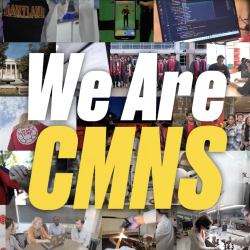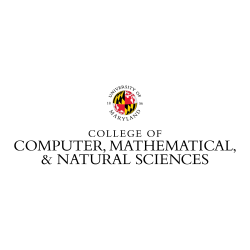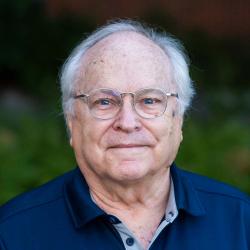UMD Offers Undergraduate Courses on the Grand Challenge of ‘Global Change’
A new initiative gets students thinking about planetary threats like climate change—and their power to make an impact.
From dwindling biodiversity and sweltering heat to widespread wildfires, droughts and floods, the Earth is in an unprecedented state of flux. To help students rise to these challenges, a two-year initiative at the University of Maryland incorporates themes of “global change”—environmental trends that affect Earth and its many inhabitants—into the undergraduate biological sciences curriculum.
Funded by a 2022 Teaching & Learning Grant, the initiative is led by 16 faculty members in the biology and entomology departments with help from graduate and undergraduate students. The group is working to create new courses and retrofit existing ones with hands-on activities that stress the biological effects felt around the world.
The idea is not to scare students, but to empower them to become part of the solution, said Karen Carleton, a professor in the Department of Biology who will teach BSCI426: “Global Change Biology” for the second time in spring 2024.
“Climate change is one of the university’s grand challenges, and it’s something that’s a personal challenge for each and every one of us. As biology faculty, we all feel the existential crisis that seems like it’s upon us,” Carleton said. “We try to cover the good and the bad in our courses and give students the tools to make changes that will have an impact.”
Twelve upper-level courses in the biological sciences major have already adopted this framework. While climate change is a major focus, students are also learning about land degradation, pollution, invasive species and other global issues. Activities added to these classes are designed to encourage active learning and make concepts of global change more relatable. In the BSCI370: “Principles of Evolution” course, for example, students were prompted to consider the plight of the real-life analog of UMD’s mascot: turtles.
“Students were asked to think about the effect of rising temperatures on the fact that turtles have temperature-dependent sex determination,” Carleton said. “At high temperatures, they tend to form females, and so you could get to a point where you’d only end up with female turtles.”

In addition to in-class activities, faculty members plan field trips that are open to all students, regardless of major. Two such trips were held during the spring 2023 semester: one that taught students about stormwater management on campus and its larger ecological effects, and another that took students on an informative boat ride with the Anacostia Watershed Society, an environmental nonprofit.
Biology Professor Alexandra Bely, who co-organizes trips with the department’s Director of Undergraduate Studies and Senior Lecturer Sara Lombardi, explained that they select activities that let students explore local issues and solutions. During the boat trip, while learning about the many industrial activities that have hurt the Anacostia River—and efforts to undo that damage—several students asked how they could help.
“It was nice because it’s not just a story of gloom and doom. The Anacostia is a river that was largely trashed, but as mindsets have shifted and as investments have been made, the river is really coming back,” Bely said. “It’s a nice example for students to see that we can have that resilience.”
More curriculum changes and trips are planned for the coming year. Following the spring semester's focus on freshwater systems, organizers want to plan field trips related to local forest ecosystems in the fall.
Although funding for this initiative will end in 2024, any changes to courses will be permanent. This initiative is doing more than merely keeping students informed. Bely noted that faculty members are uniting in a shared mission and fostering a community of students who want to positively impact their communities.
“A group of us are looking beyond our own courses and thinking broadly about what we want our students to be getting out of their experience here in biological sciences,” Bely said. “It’s been really rewarding seeing students motivated to engage in the world. It’s a key goal of ours to have students go from knowledge to action.”







